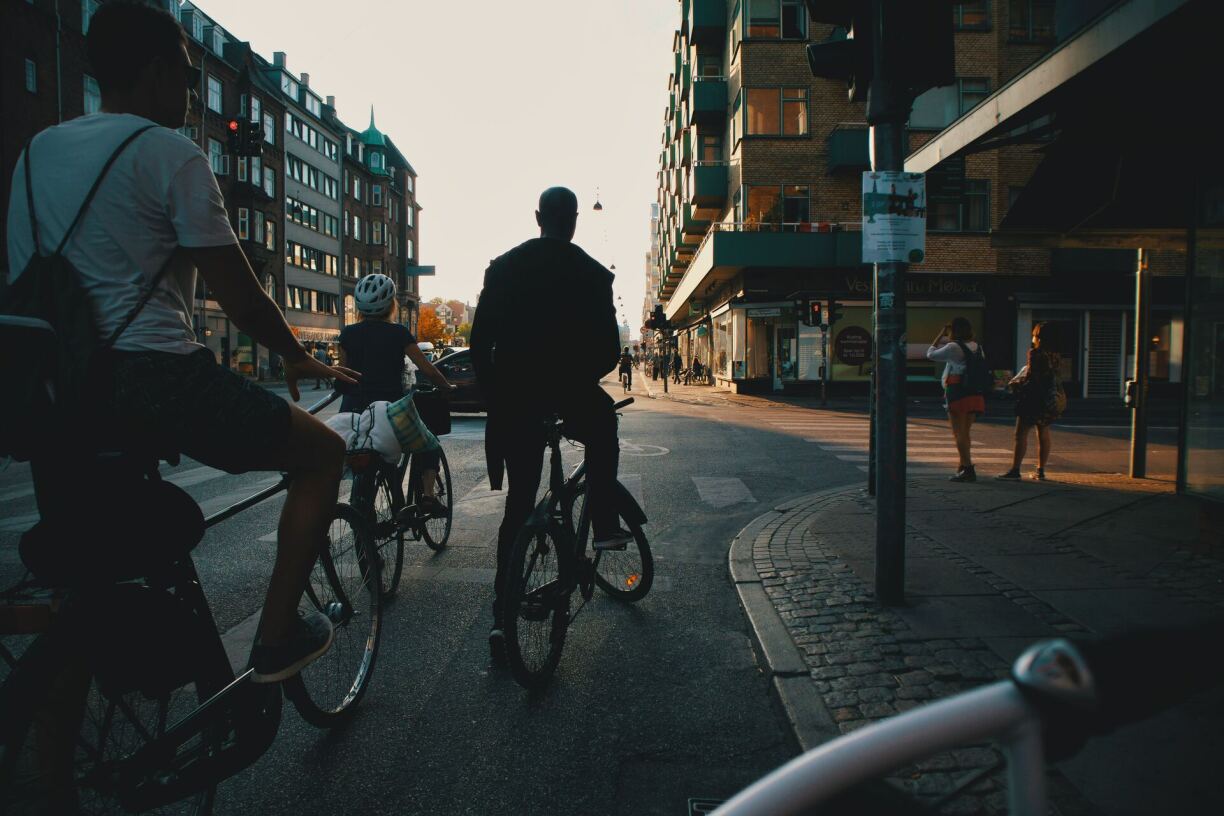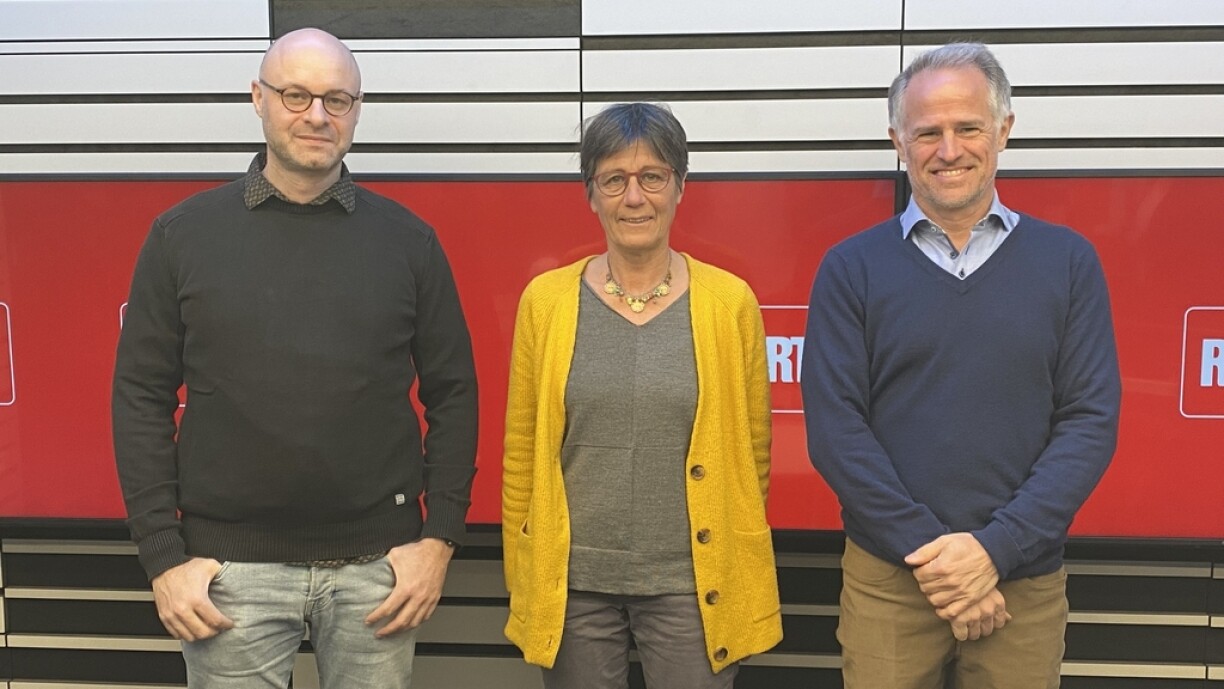
On Saturday afternoon, our colleagues from RTL Radio hosted a roundtable discussion on urban planning. Their guests were ProVëlo President Monique Goldschmit, Urbanist Tom Becker from the University of Luxembourg, and Senior Advisor at the Ministry of Mobility Christophe Reuter.
One of the conclusions of the roundtable was that people have been thinking from the perspective of the car for far too long. The guests agreed that bicycle traffic must be expanded, among other things to reduce car congestion in cities.
Read also: Calls for compulsory cycling helmets and 30km/h speed limits on Luxembourg’s roads
There is a broad movement nowadays to put people back at the core of spatial planning and mobility, says urbanist Tom Becker from the University of Luxembourg. For example, through more local shops, perhaps also in the vicinity of bus stops, or multifunctional neighbourhoods.
The president of cycling advocacy group ProVëlo, Monique Goldschmit, believes that a lot of policymakers lack courage. Politicians are often afraid of backlash, Goldschmit says, “which does not always correspond to reality.”
Cities like Paris or Utrecht, for example, have had very positive experiences after they dared to give more space to bicycles and people saw how it works, she points out.
According to Becker, people tend to be more open to new ideas than politicians realise.

Parking spaces are more or less “the key to mobility,” says Christophe Reuter, First Advisor at the Ministry of Mobility. “Those who really need a parking space should be given one,” Reuter argued. In his eyes, so-called “long-term parking” is particularly problematic, as well as the fact that many still park their cars on the side of the road.
These habits make it difficult to implement other forms of mobility in these places, including bicycles or wider pavements, from which wheelchair users or even pedestrians with prams could benefit, Reuter notes. According to Reuter, free parking spaces, which are still in high demand, are “no longer compatible” with current property prices.
In his opinion, Luxembourg has built “an incredibly high-quality culture” for cars over the last 60 years. “If you offer quality, people will accept it – that is only human,” Reuter says.
The car remains central in neighbourhoods such as Gasperich. According to urbanist Becker, the neighbourhood is “a product of its time.”
In his opinion, the neighbourhood would be planned differently today, with more diversity, more small shops, more green spaces, and wider pavements.
But such a planning culture is far from universal, according to the Ministry of Mobility’s more sceptical spokesman. Even today, a lot of planning is being done from the perspective of the car driver, Reuter argues.
Regarding road safety, ProVëlo criticises that when it comes to expanding cycle paths, there is still too much patchwork being done to the detriment of a more holistic approach. Especially in rural areas, projects would often only come about through pressure from the population. In practice, there is still a lack of communication between the responsible authorities, Goldschmit criticises.
The goal must be for the youngest to be able to cycle alone wherever they need to go, Monique Goldschmit says. “We can only make progress if we listen to those who know the area,” she stressed.
There is still room for improvement regarding the 30 km/h zones that already exist today, according to Reuter, adding that “they are not always designed as they should be.”
Reuter also teased that before the summer, the Ministry will announce a new measure allowing it to slow down traffic on longer stretches of state roads, such as the one in Neudorf.